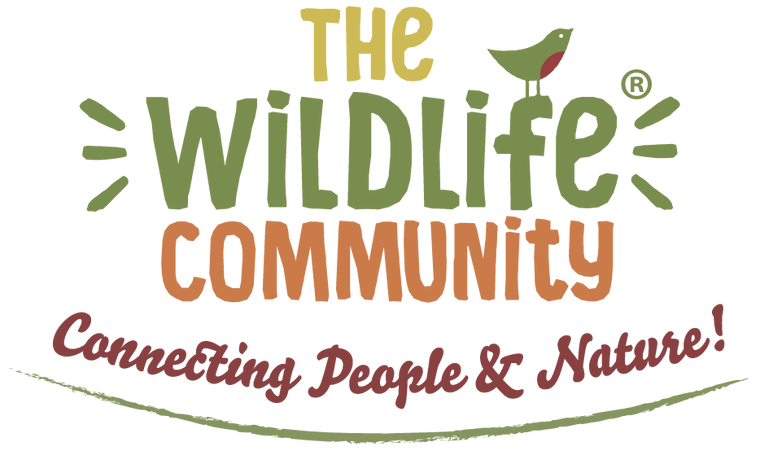
Sustainable Wildlife Gardening
Sustainability, eco choices and buying Fairtrade are now top of the list for our shopping habits. We're all on the look out for new gifts or products that have been made with ethics and the environment first and foremost in the mind. And no more so than for our gardens and the wildlife that visits them. Sustainable gardening and plastic-free gardening are hot topics for 2022.
At Wildlife World, it is our ethos to focus on the ethical and environmental provenance of what we sell. After all, we're making habitats and feeders for wildlife! Founder, Norman Sellers, says, "We will spend hours thinking about how a product is made and what it is made of, so that we are not ruining an environment somewhere else. The whole of our business is driven by environmental decisions. You can feel comfortable that you're not destroying an environment somewhere else because of the product you are buying from us." It's these decisions that are behind some of our newest products, including our Artisan range, our Cotswold Granaries wildlife food and our new Plastic-Free Gardening collection.

Why is sustainability important in gardening?
Gardeners are very aware of our rapidly changing climate and the effect this is having on our plant life and our wildlife. We're all noticing flowers, trees and plants bursting into life earlier and earlier each year. It's happening in our very own back gardens, where we're spending more and more time. We're witnessing drier summers and wetter winters. Leading to flooding, storm damage and wild fires.
With global biodiversity declines being brought to our attention, and with private gardens making up 10 million acres of green space in the UK, every little patch of habitat counts. According to the Wildlife Gardening Forum, "Putting this in protected landscape terms, it is the area of the Norfolk Broads, and the Exmoor, Dartmoor and Lake District National Parks added together. Taking England alone, the total area of the 224 National Nature Reserves is only 94,400 hectares or 0.7% of the land surface. This means the total area of gardens is 459% larger than the NNR total."
The recent State of Nature report revealed that since the 1970s, 41 per cent of all UK species surveyed have declined, while 15 per cent of species within the UK are said to be threatened with extinction. The abundance of the species of greatest conservation concern; the UK’s priority species, have declined by 60 per cent. By making certain decisions in our own small green spaces, we can be part of a bigger community of people trying to help.
How can I garden more sustainably?
One of the best ways you can do this is by gardening for wildlife first. Rather than considering how you use or move around the garden, what about starting with the birds, bees, bats, hedgehogs and frogs that might want to, or need to, use it? Adding elements like a pond (no matter how big or small), log piles, trees, hedgerows and bushes, and compost heaps and then removing pesticides, netting, and chemicals can go a huge way towards helping local wildlife into your garden.
Find out more about chemical-free gardening from our ecologist, Chantal Brown, here:
Choose native wildflower seeds, flowering plants and pond plants for your garden. Don't mow your lawn too often. Leave dandelions and other 'weeds' to grow. Leave your ivy to mature over the late summer and autumn. Don't cut back hedges during nesting season and leave rotting wood and tree stumps for bugs to live in. There are loads of little jobs that can effect a big change, and if you're a family, then children love to get involved in dirty messy jobs like these!
How can I buy sustainable products for the garden?
Gardeners are becoming more and more picky about the provenance of the products they use in the garden.
- Look at your labels. Search for words like FSC-certified wood. This means the wood used comes from sustainable sources certified by the Forestry Standards Committee.
- If we do have to use plastic in our products then we try to use second-life plastic or recycled plastic as much as possible, so look for wording along these lines. Ours is recycled from farmers' bale wrap and makes really strong and durable hanging devices for our nest boxes and the fabulous Hogilo Hedgehog House.
- Our Plastic-Free Gardening range of seed cell trays is exactly that - free from plastic. Instead it is made with a natural rubber which is an entirely sustainable product grown by farmers on small plantations.
- Our Cotswold Granaries food is another example of utilising revolutionary plastic-free materials. Instead we have chosen to use fully compostable packaging. That means you can literally throw it onto your compost heap or into your green food waste caddy when you've finished with it.
Find out more about the Cotswold Granaries range of wildlife food here:
Can I buy Fairtrade gardening products?
Take a look at our Artisan range. These Hedgehog Houses, Bird Nesters and Bee Skeps are all made by artisan women in Bangladesh. The Nesters were our very first World Fair Trade Organisation product! We pay a Fairtrade price for these products, helping to fund the survival of women and their children in rural communities struggling with poverty. They're handmade, again using recycled products because the beautiful colourful detailing is thanks to saris which have been given a second life. Each artisan chooses the sari they would like to weave within the seagrass and metal frame, making each nester unique.
Want to find out more about wildlife-friendly gardening? Our Wildlife Community podcast features famed wildlife gardener, Brigit Strawbridge Howard and you can listen here.




